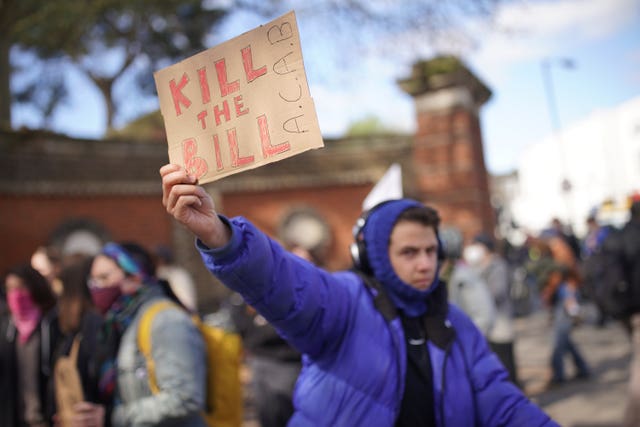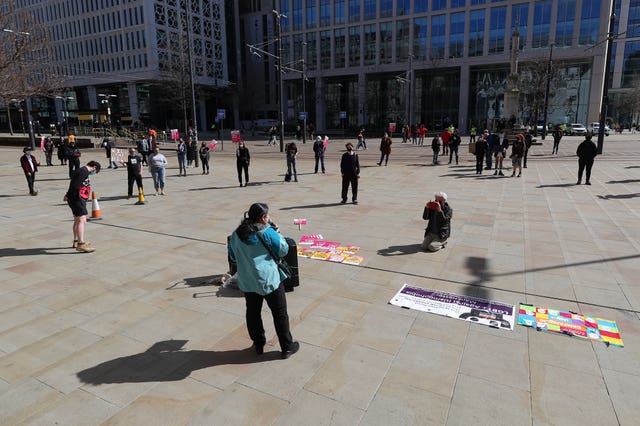Hundreds of people have taken part in Kill the Bill protests across the UK on Friday 2 April. Protests are in opposition to the powers that will be granted to police in the Police, Crime, Sentencing and Courts Bill.
Large numbers of people gathered in Guildhall Square in Southampton. Demonstrators also convened in London and Manchester.
Protests are lawful
Following an easing of restrictions in England, the protests are lawful. Organisers have been asked to submit a risk assessment and take steps to ensure the gatherings are safe.

Despite this, the Metropolitan Police warned on Thursday 2 April that they’d take enforcement action “if needed, in the interests of public health”.
Demos across England
In Southampton, protesters set up a makeshift PA system and chanted “Kill the Bill”, while others banged drums.
A crowd of around 200 gathered outside the gates of Finsbury Park in north London. Most were wearing masks, and many held banners with phrases defending the right to protest. The group stayed for around an hour and a half before dispersing peacefully.
In Manchester, demonstrators remained socially distanced in St Peter’s Square. It came after Greater Manchester Police introduced a 48-hour dispersal order for the city centre. This means officers can direct anyone acting anti-socially to leave the area. The order will last until 3pm on Saturday 3 April.

The first Kill the Bill protest in Bristol on 21 March descended into a riot following heavy-handed policing. Subsequent rallies on 23 and 26 March also ended in clashes between the police and protesters. A further demonstration on 30 March passed off peacefully.
The Police Bill
The proposed Police, Crime, Sentencing and Courts Bill would give police in England and Wales more power to impose conditions on non-violent protests. That includes protests deemed too noisy or a nuisance. It also includes protests which affect businesses, such as worker strikes.
Many have also criticised the bill for effectively criminalising Gypsy, Roma and Traveller (GRT) communities. Those convicted would be liable to fines or jail terms.
















